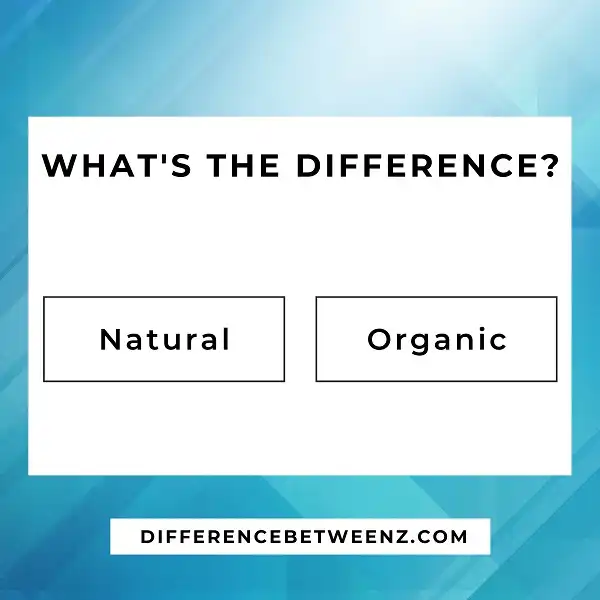Natural vs. Organic
Difference between natural and organic: – With the heyday of healthy lifestyles, many people have begun to lead a more active life and eat healthier food, often labeled “natural” or “organic.” terms that are completely different regardless of the health factor and regulations that may have each country.
Difference between natural and organic
If you have doubts about what is the difference between natural and organic or you are just looking for a little more information to complement what you already know, then continue reading, because below we explain everything you need to know around to this interesting topic.
Natural
Meals or foods grouped under the label “natural” are found everywhere today. Already almost all the packages have some label or seal with this word written in him.
The “natural” usually means that foods are minimally processed or do not contain ingredients such as hormones, antibiotics, sweeteners and colors or artificial flavors. However, it is good to clarify that these days is a term loosely used as a marketing strategy to attract a type of consumer.
In many countries the standard that allows classifying foods as “natural” is not legally regulated by the government, therefore, products are usually produced that are assigned this label without actually meeting the requirements to be considered as such.
Since almost all foods are derived from a natural source (plants, animals, fungi …), many traders use this label on their products; however, since almost everything one eats is processed to some extent (whether mechanically, chemically, by temperature …) it is difficult to define what kind of foods can be described as “natural.”
Organic
On the other hand, organic food is one that is produced using methods that do not involve modern synthetic procedures like certain pesticides and chemical fertilizers. Nor is it used irradiation, industrial solvents or chemical additives in their production.
The term organic became popular in 1940, during the Green Revolution and unlike what happens with food cataloged as “natural”; organic foods are regulated by the government or responsible institutions.
Finally, in countries such as the United States, the United Kingdom and China, it is even necessary for organic food producers to obtain special certification allowing them to sell their products on the market. According to the regulations of most countries, a food has to be at least 95% organic so that it can be labeled that way.


